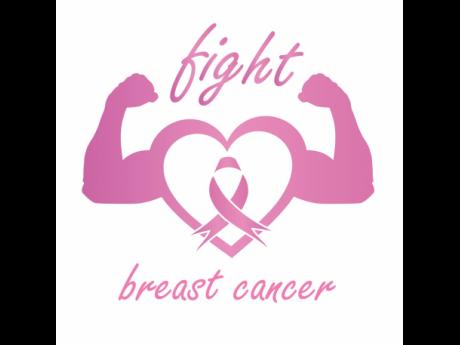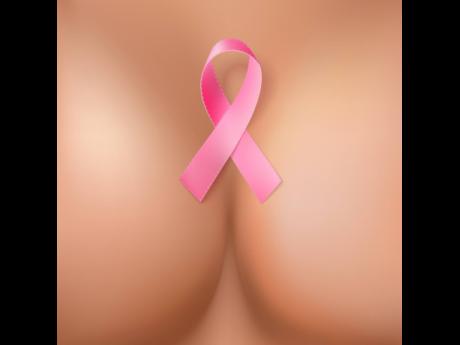Check your breasts: Cancer does not discriminate
Breast cancer does not discriminate! Some of the people that we least expect can be affected. For most women diagnosed with the illness, it can be a nerve-racking experience. Treatment of the disease typically involves surgery to remove the breast tissue, and this process is also one of the fears that many women have to conquer.
Among Jamaican women, breast cancer is the leading cancer, followed by cervical cancer. With approximately 300 women dying in Jamaica from the disease annually, Jamaica Reach To Recovery, the support arm of the Jamaica Cancer Society, has been a tower of strength for many women battling the disease.
Jamaica Reach to Recovery offers emotional, psychological and financial support to breast-cancer survivors. The organisation consists of volunteers who are breast-cancer survivors. Chairperson of Jamaica Reach To Recovery, Carolind Graham, said from diagnosis to the recovery process, they offer support to many women with the disease.
“We have a panel of persons that support newly diagnosed persons. They are able to share their fears and concerns and get much-needed advice even as it relates to going into the hospital for their surgery,” Graham said.
OFFERING SUPPORT
Once persons have had surgery, Graham said they also offer support and reassurance to women who are having challenges.
“It is likely that others in the group have had a similar experience. Treating breast cancer is not only physical but mental, and we empathise with what they are going through. It helps persons to understand that what they are experiencing is not peculiar to them,” Graham said.
The cost for cancer treatment is quite expensive, and Graham said the group also undertakes fundraising efforts to assist as many women as they can to offset some of their expenses. Persons affected by breast cancer typically face costs of over a million dollars from their diagnosis and subsequent treatment.
“After having gone through the battle and come out on the other side, we are able to celebrate our recovery. It is therefore very important that each year women do a mammogram,” she said.
Graham said when she was diagnosed with breast cancer, she had no signs or symptoms. “I just had a regular mammogram and they found grains of sand. I could have just sat there as I was totally unaware that I had an issue,” she said.
As the world observes Breast Cancer Awareness Month, she said people are reminded of how vulnerable the society is to diseases, especially as COVID-19 cases surge.
The COVID-19 pandemic, she said, has put a damper on fundraising efforts, including the ICWI/Jamaica Reach to Recovery Pink Run; however, they were still resolute in their efforts to support as many women as possible through their diagnosis and treatment.
For more information on Jamaica Reach To Recovery, contact 876-978-0375. Meetings are held every second Tuesday of each month at the Webster Memorial United Church Hall at 5 p.m.
The Jamaica Cancer Society offers counselling to individuals and families affected by cancer. There counsellors visit hospitals and homes offering support, or persons can call their counselling lines at 927-8152 or 927-9275 or visit their office on Mondays and Wednesdays.


